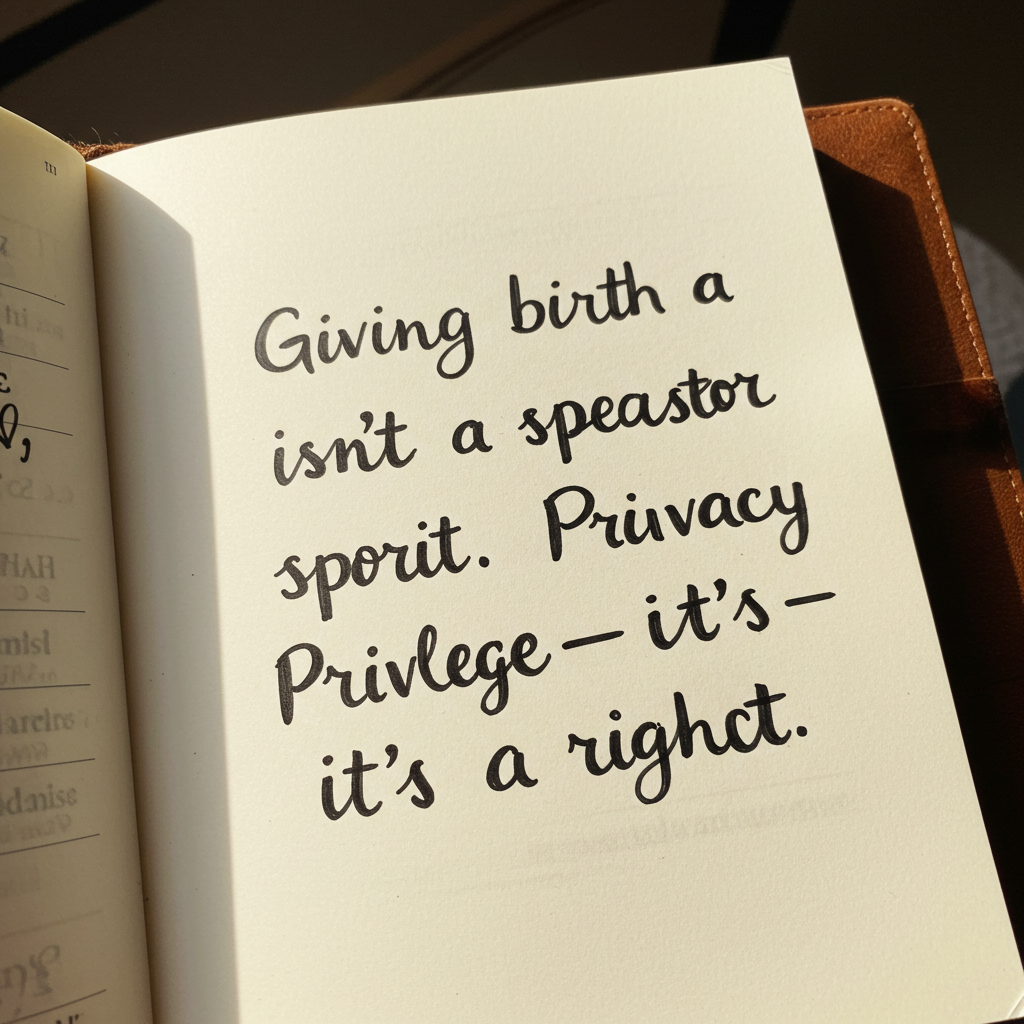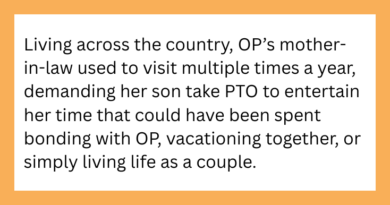Am I the Jerk for Refusing to Let My Mother-In-Law into the Delivery Room?
When emotions are high and boundaries are tested, family drama tends to unfold—and one of the most common battlegrounds is childbirth. That’s exactly what happened when one Reddit user posted their story about setting a firm boundary during one of the most vulnerable moments of their life: labor and delivery.
The result? An explosive family conflict and a gut-wrenching question: Am I the jerk for not letting my mother-in-law into the delivery room when I gave birth?
Let’s unpack this high-stakes AITAH moment about bodily autonomy, generational expectations, and the modern lines drawn between privacy and family involvement.
The Background: A Private Birth Plan

The Original Poster (OP) explained that she and her husband had carefully planned for the birth of their first child. OP made it clear from the start that she only wanted her husband present in the delivery room. No additional visitors. No exceptions.
Her reasoning was straightforward: childbirth is deeply personal, physically intense, and emotionally overwhelming. She didn’t feel comfortable having anyone else there, including her own family—so she wasn’t making any exceptions for in-laws either.
Her husband agreed and promised to support whatever made her feel safe and calm.
The Mother-In-Law’s Surprise Demand

What OP didn’t expect was her mother-in-law (MIL) insisting she had a “right” to be present during the birth of her grandchild. MIL began dropping hints weeks before the due date, saying things like, “I’ll be right there when he’s born!” and “I watched all my grandbabies come into the world.”
OP reiterated her boundaries, respectfully but firmly. She thanked her for her excitement but reminded her that the delivery room would be limited to medical staff and her husband.
That wasn’t enough.
The situation exploded when MIL showed up at the hospital, demanding to be let in. When told no, she caused a scene at the nurses’ station, accusing OP of being “selfish” and “shutting out family.”
The Aftermath: A Family Torn

After the birth, OP and her husband were thrilled to welcome their baby—but the tension with MIL was palpable. She refused to visit the baby, claiming she was “being punished” and “treated like a stranger.”
Other family members chimed in, saying OP should have let her MIL in “just for a few minutes” or made a compromise. Some even accused OP of robbing MIL of an important milestone.
OP stood by her decision. Her body, her birth, her rules. But she couldn’t help but wonder—was she being too harsh?
Bodily Autonomy Isn’t Selfish

Labor Is Not a Spectator Sport
One of the most discussed themes in the AITAH thread was bodily autonomy. OP wasn’t hosting a birthday party—she was going through one of the most intense medical experiences of her life. No one has a “right” to be in the room unless the patient wants them there.
Redditors were quick to point out that childbirth is not a family performance. It’s a physically vulnerable event that can involve pain, complications, and anxiety. If a laboring woman doesn’t want someone present, that decision must be respected.
The Guest List Is Not Up for Debate

Whether it’s a friend, a parent, or a mother-in-law, no one is entitled to override the birthing person’s decision. Medical professionals always defer to the patient’s wishes—and in this case, OP’s boundaries were clearly communicated ahead of time.
Her refusal wasn’t personal. It was about comfort and peace during a life-altering moment.
Generational Expectations vs. Modern Boundaries

“That’s Not How We Did It in My Day…”
Many Reddit users recognized a generational clash at play. For older family members, especially mothers and grandmothers, the arrival of a grandchild is viewed as a communal family celebration. They may have been present for their daughters’ or daughters-in-law’s deliveries in the past and expect to be again.
But norms have shifted. Modern birthing plans often center on privacy, consent, and emotional safety. And just because something was once common doesn’t mean it’s owed to anyone.
Respect Is a Two-Way Street

A major turning point in OP’s story was her mother-in-law’s hospital behavior. Rather than respecting the birth plan, she escalated the situation—causing public drama and stress at an already fragile time.
If MIL had responded with grace, she might have been welcomed soon after the birth. Instead, her reaction made things worse and prolonged the conflict.
Supporting the Partner Doesn’t Mean Undermining the Spouse

OP’s Husband Did the Right Thing
Another key point of debate was OP’s husband. Should he have stood up more to his mother? Did he support his wife enough?
According to OP, her husband stuck to their agreed plan and didn’t give in to MIL’s pressure. That’s critical. In high-stress family moments, partners must back each other—especially when it comes to health, privacy, and boundaries.
Any cracks in that united front could have made the situation far more traumatic.
Healthy Boundaries Lead to Healthy Families

Standing firm on boundaries can cause short-term friction, but long-term respect. OP modeled the kind of self-advocacy and family planning that will benefit her child in the years to come. Families thrive when consent is respected—not when guilt trumps personal agency.
What the AITAH Community Said

Unsurprisingly, Reddit backed OP almost unanimously. Here are a few standout comments:
“You weren’t denying her access to her grandchild—you were preserving your dignity during childbirth.”
“MIL wasn’t entitled to be there just because she’s related. You made a decision about your body and your experience.”
“This is a boundary issue. If she respected you, she would have honored it.”
Some users added that this conflict is often a sign of larger control issues and that it might be time to establish firmer limits going forward.
Final Thoughts: You’re Not the Jerk for Protecting Your Birth Experience

Childbirth is not a time for negotiation—it’s a time for support, privacy, and emotional safety. OP made a deeply personal decision and communicated it clearly. Her MIL’s reaction, though fueled by excitement, crossed boundaries that should never be ignored.
In a world where birth is often treated like a group event, it’s important to remember: the person giving birth is the one who gets to decide how it happens.



